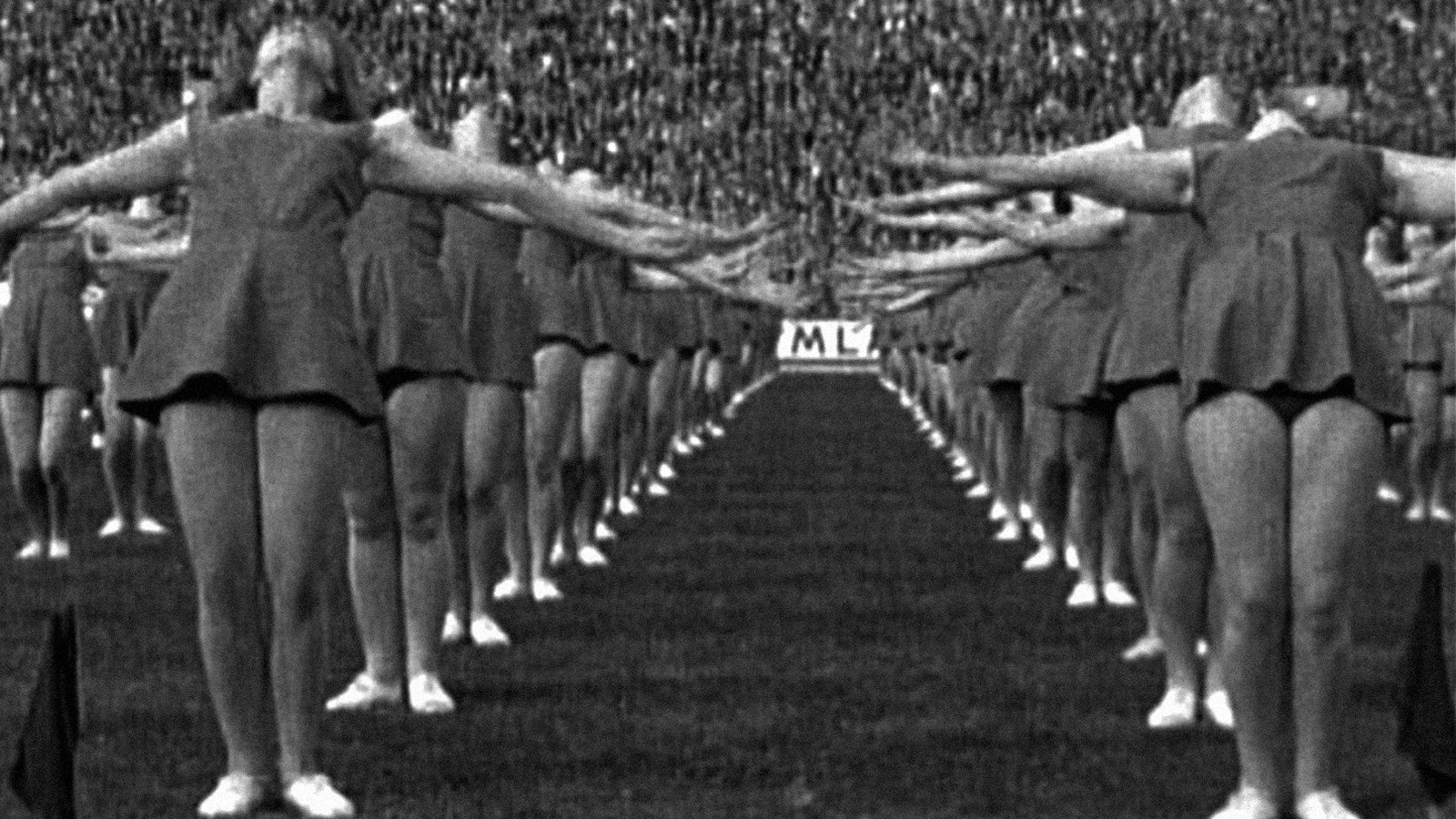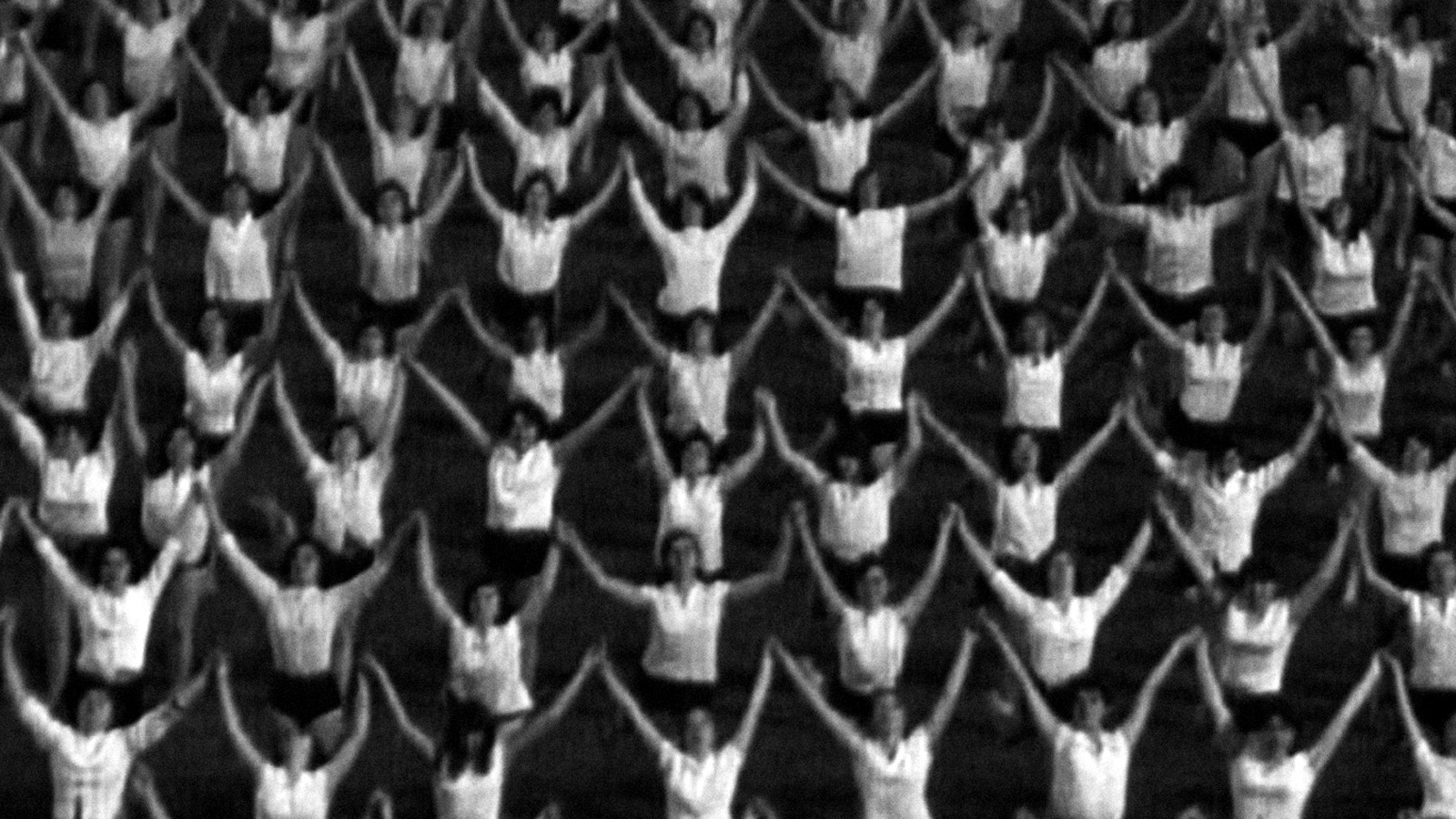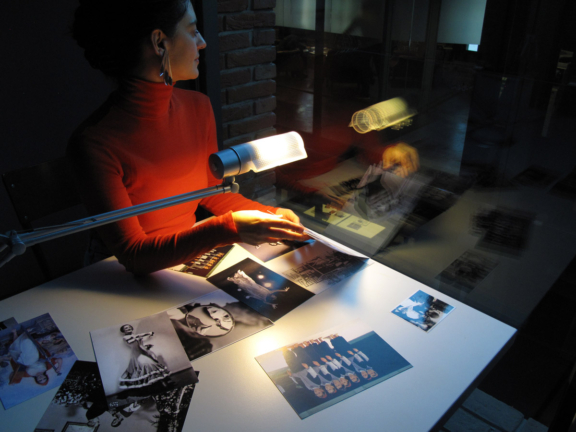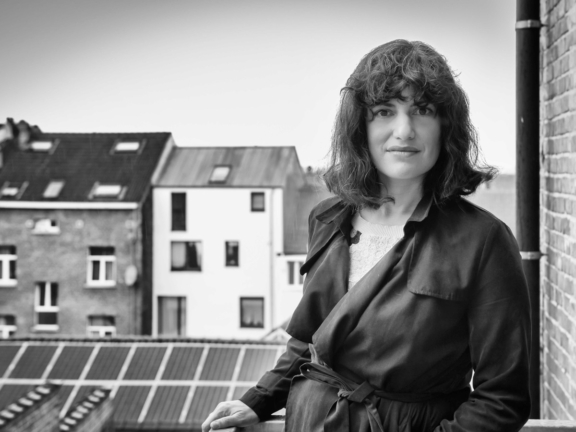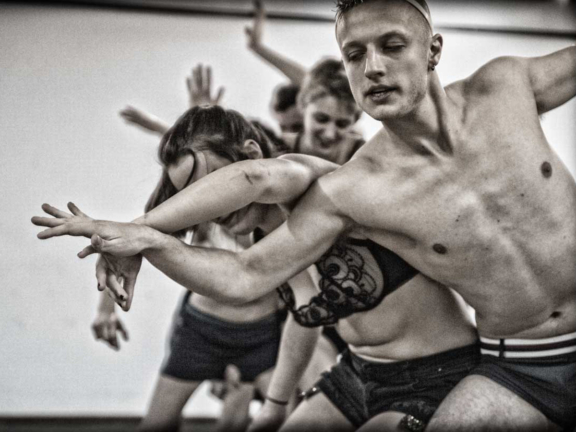
Yugoslavia: How ideology moved our collective body
By Marta Popivoda
Event Slider
Date
- / Cancelled / Sold out
Location
Room 1 Calouste Gulbenkian FoundationDuration: 62 min.
Yugoslavia: How ideology moved our collective body, a film by Marta Popivoda, is shown on a day entirely dedicated to the themes of transmission, choreography and history. These three terms synthesise key ideas of the dance not dance programme, revealing what is political and ideological in the forces that move bodies among themselves and through time. The archive is the background place providing access to – and, eventually, reviving or counteracting – rhythms and entropies, as well as allowing for the recognition of the past (or its effect) in the present.
Focusing on Yugoslavia’s collective state performances between 1945 and 2000 – such as the 1st May parades and Youth Day celebrations – and the protests in the same period – including May 1968, the student and civil demonstrations in the 1990s, and Portugal’s revolution of 5 October 1910 – this film, entirely created from archival images, examines how ideology presents itself in the public realm, through mass entertainment. By showing the articulation between people, ideology and the State, the images reveal the gradual collapse of State communist ideology within the country.
On the same day, the conference On the possibilities of conserving performance by Hélia Marçal, the conference-performance Envelopment, history and syncope by Isabel de Naverán and the conference Social Choreography: Rehearsing order for appearances of disorder by Bojana Cvejić also take place.
Marta Popivoda (1982, Belgrade, Serbia) is a filmmaker, artist and researcher. Her work focuses on the tensions between memory, history and ideology, as well as the relationship between collective and individual bodies, from a feminist and queer perspective. She has presented her films at numerous film festivals, but also in art galleries and biennials, such as New York's MoMA, London's Tate Modern and Manifesta 14.
dance not dance
This event is included in the (re)performances, films and talks series which constitutes the first part of dance not dance – archaeologies of the new dance in Portugal. More info.
The Calouste Gulbenkian Foundation reserves the right to collect and keep records of images, sounds and voice for the diffusion and preservation of the memory of its cultural and artistic activity. For further information, please contact us through the Information Request form.

